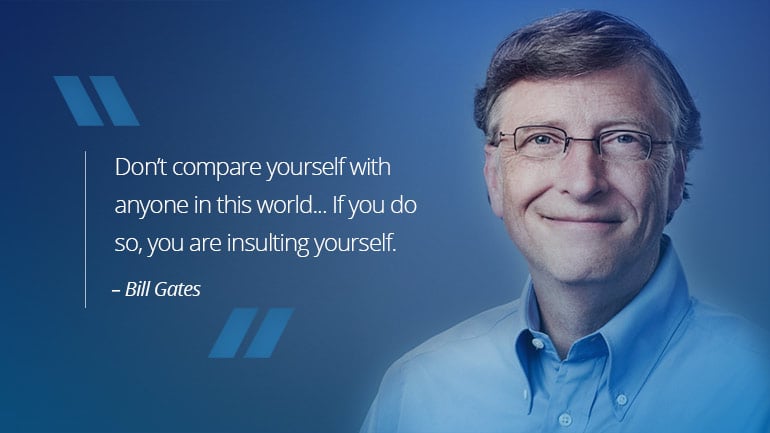Microsoft at 50: A Legacy Reinvented with AI, Innovation, and Unfinished Lessons

As Microsoft celebrates its 50th anniversary, it stands not only as a pillar of the technology industry but also as a testament to the power of reinvention. From its humble beginnings with two college dropouts to becoming a $3 trillion tech titan, Microsoft’s story is one of unparalleled innovation, resilience, and ambition. Now, under the leadership of Satya Nadella, the company is at the forefront of the AI revolution, but its journey is far from flawless. This deep dive explores Microsoft’s transformation, its embrace of AI, and the lessons it still needs to master.
When Satya Nadella took over as CEO in 2014, Microsoft was grappling with an identity crisis. The company had missed the mobile wave, clung tightly to its Windows and Office monopolies, and fostered a notoriously cutthroat culture. Nadella's mission was clear: to reshape Microsoft into a more open, innovative, and empathetic organization.
Cultural Overhaul
Nadella’s first move was to dismantle the toxic work environment. His emphasis on “learn-it-all” rather than “know-it-all” mindsets, coupled with initiatives like distributing Nonviolent Communication books to senior leaders, signaled a departure from the aggressive Gates-Ballmer era. This cultural shift played a pivotal role in creating a more collaborative and adaptive Microsoft.
Strategic Acquisitions
From the $26 billion acquisition of LinkedIn to the bold $7.5 billion purchase of GitHub, Nadella’s strategy of buying rather than building allowed Microsoft to expand its influence. These acquisitions have not only diversified its portfolio but also enabled it to attract a new generation of developers and professionals.
The OpenAI Bet
Microsoft’s partnership with OpenAI in 2019, initially a $1 billion investment, is arguably the most transformative deal in its history. While risky, the collaboration gave Microsoft exclusive rights to OpenAI’s groundbreaking technologies, including GPT models. This synergy propelled Microsoft into the AI vanguard, with applications like GitHub Copilot and Azure AI transforming industries.
AI Integration Across Products
Microsoft’s vision of the "AI Copilot" aims to embed AI into every aspect of its ecosystem. From enhancing productivity in Office 365 to redefining search with Bing’s GPT-powered engine, the company is leveraging AI to stay ahead of competitors like Google and Amazon.
Challenges in AI Adoption
Despite its successes, Microsoft has faced growing pains in its AI journey. Early missteps, such as the racist outputs of the Tay chatbot and the privacy concerns surrounding the Recall feature, underscore the challenges of deploying advanced technologies responsibly. These incidents highlight the fine line Microsoft must walk between innovation and ethics.
Enterprise Transformation
Microsoft’s cloud platform, Azure, is the backbone of its enterprise offerings, providing scalable solutions for businesses of all sizes. The integration of AI into Azure has made it a leader in cloud-based machine learning and analytics, enabling companies to harness the power of AI without massive upfront investments.
Gaming and Entertainment
With its acquisition of Activision Blizzard, Microsoft has solidified its position as a gaming powerhouse. Its Xbox Game Pass service, now enhanced by AI-driven recommendations and cloud gaming, is a key driver of the company’s future growth.
Education and Workforce Development
Microsoft has also revolutionized education and workforce development. GitHub Copilot, for example, empowers developers with AI-assisted coding, reducing time spent on repetitive tasks and accelerating innovation.
For all its achievements, Microsoft’s history is littered with lessons in hubris. Its antitrust battles of the late 1990s and early 2000s were a direct result of its monopolistic practices. Today, similar accusations are surfacing, with investigations into its bundling of Teams with Office 365 and its dominance in cloud services.
Security Shortcomings
Recent cybersecurity failures, including breaches exposing sensitive government communications, have raised questions about Microsoft’s commitment to security. While the company has pledged to improve, critics argue that its focus on new product development often comes at the expense of robust security measures.
Ethical AI Deployment
Microsoft’s handling of AI ethics is another area where improvement is needed. Ensuring that AI systems are transparent, fair, and secure is critical, especially as these technologies become integral to daily life.
As Microsoft moves forward, it faces both unprecedented opportunities and significant challenges. The company’s success in the AI era will depend on its ability to:
Maintain Ethical Standards: Building trust with users and regulators through transparent, responsible AI practices.
Foster Security Culture: Prioritizing cybersecurity to protect its expansive ecosystem.
Drive Inclusive Innovation: Ensuring that its technologies benefit diverse populations and industries.
Adapt to Competition: Staying agile as rivals like Google, Amazon, and new AI startups vie for dominance.
At 50, Microsoft stands as a reimagined entity—an AI powerhouse with a renewed sense of purpose. Nadella’s leadership has turned it into a company that not only survives but thrives in an industry where tradition often equates to obsolescence. Yet, the journey is far from over. To truly lead in the age of AI, Microsoft must balance its ambitions with humility, ensuring that its innovations empower rather than exploit. If it can master this balance, Microsoft’s next 50 years could be even more transformative than its first.

For modern telecom enterprises, delivering exceptional QoS is no longer optional—it’s a brand differentiator and a strategic lever for growth. Static provisioning models won’t cut it in a world of hyper-dynamic data usage.